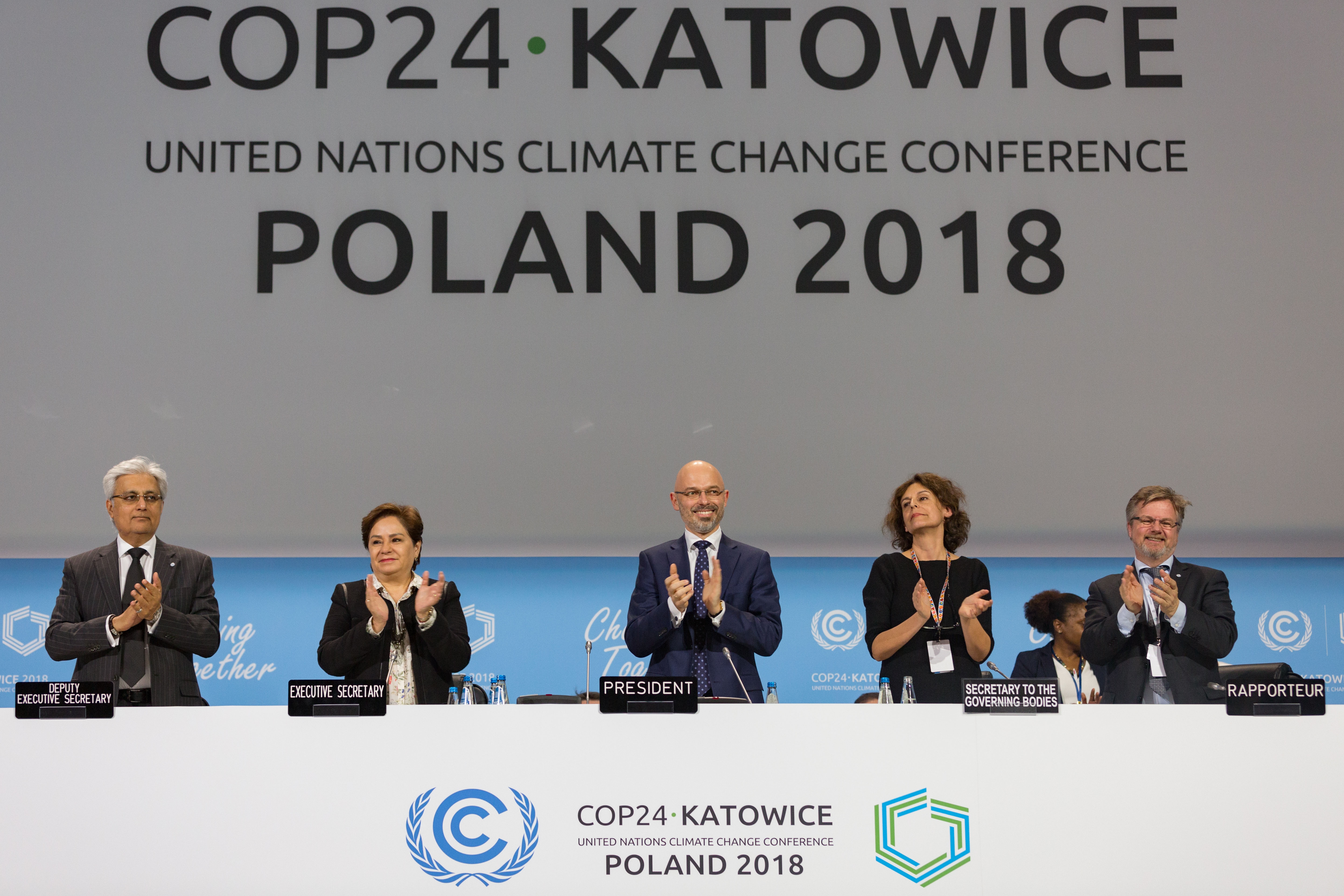Important steps made at the COP24 climate summit
- By Niranjan Sahoo
 0 Comment(s)
0 Comment(s) Print
Print E-mail China.org.cn, December 21, 2018
E-mail China.org.cn, December 21, 2018

After more than two weeks of hectic parleys and two years of tough negotiations, 195 member countries finally agreed to release a rulebook that will pave the way for implementation of the 2015 Paris Agreement. Billed as the most critical conference to hash out contentious issues and divergent views from developed and developing blocs, the recently concluded climate change conference in Poland's Katowice seems to have lived up to expectations, albeit with a weaker enforcement mechanism than hoped for.
We must recall that the recent report by the Intergovernmental Panel on Climate Change (IPCC) made an urgent call to countries and global communities to intensify their climate saving actions to meet the goals set in the 2015 Paris Agreement. Member countries agreed to limit global warming to 2 degrees Celsius above preindustrial levels, and with combined force even to bring the increase down further to 1.5 degrees Celsius. Given dire warnings, the Katowice rulebook has taken on a critical role as it is to provide the systems and processes to ensure member countries are stepping up their efforts and meeting their 2015 pledges.
While it will take some time to grasp the real outcomes of Katowice, a few brief observations are in order. First, given the pessimism and resistance surrounding the Paris deal that has grown over the past year or so, especially since the surprise U.S. pull-out, the release of a much needed "rulebook" should be seen as an achievement. Mounting public pressure in light of recent IPCC reports calling for urgent actions to restrict the greenhouse effect appears to have convinced key countries to downplay differences and agree on something modest.
Second, despite strong and persistent resistance from the developed nation group on climate financing, the American withdrawal, weakening of alliances and disagreements within G77 helped ensure a decent commitment in this regard. The Katowice guidelines on finance provisions made it mandatory for developed nations to provide to developing ones much-needed means for implementation, while recognizing the necessity of presenting additional finance options. COP24 agreed to establish new finance targets from 2025 onwards as a follow-up to a US$100 billion target by 2020. While the past record of climate finance is not very encouraging, given the dire situation in which the world finds itself, having new ambitions is not a bad thing.
Third, notwithstanding weak enforcement structures, the Katowice rulebook has greatly strengthened the role of information in the fight against climate change. As agreed, governments are expected to provide detailed information on their interventions, including quantifiable data that will be open to global scrutiny. Further, governments must furnish progress reports with clear and measurable indicators every five years. While they do not face any legal consequences if they fail to fulfil these commitments, they will fall under heavy domestic and international pressure. Additionally, COP24 has laid out mechanisms for extensive information-gathering from multiple sources, such as state, non-state and inter-governmental bodies related to mitigation, adaption, equity and support issues, among others.
Finally, going beyond the actions of nation-states, COP24 loudly recognized the role of businesses, cities and citizens in climate efforts, especially youth organizations. Thus, these non-state actors found new support from participating nations and climate action activists.
To conclude, many climate soothsayers predicted disastrous ends following resistance from major oil-exporting countries like the U.S. and Saudi Arabia, and opposition from Brazil's new president Bolsonaro. However, major powers like China, India, the EU and Africa played a decisive role in keeping the efforts alive. This is not to ignore the considerable pressure generated by small and vulnerable island nations and civil society groups as well. In short, the Katowice climate summit has proven to be a victory for multilateralism.
Niranjan Sahoo is Senior Fellow of the Observer Research Foundation, New Delhi.
Opinion articles reflect the views of their authors only, not necessarily those of China.org.cn.





